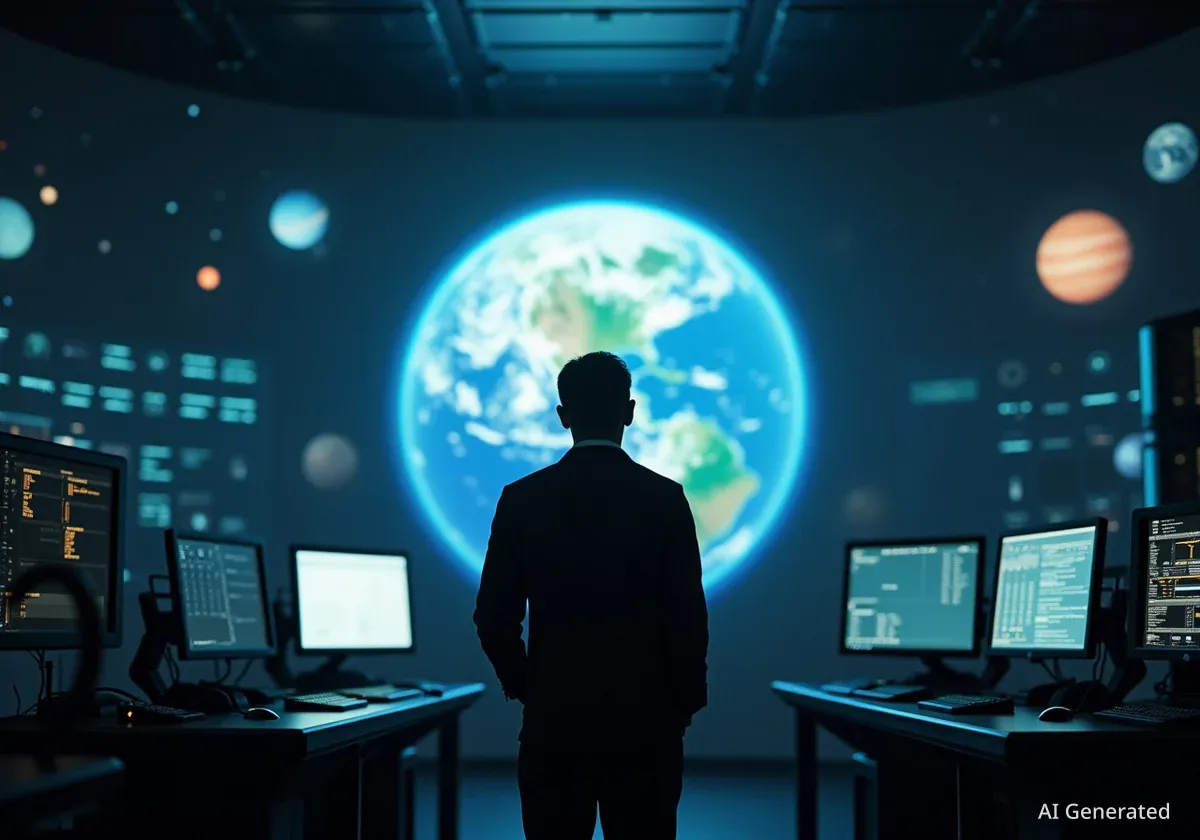Renowned astrophysicist and science communicator Professor Brian Cox has been appointed as the new United Nations Champion for Space. The honorary role, designated by the UN Office for Outer Space Affairs (UNOOSA), aims to leverage his global platform to promote the use of space technology for sustainable development on Earth.
In his new capacity, Professor Cox will work to raise awareness of how international cooperation in space can address critical global issues, including climate change, disaster management, and economic development. The appointment highlights a growing emphasis on the practical, Earth-bound benefits of space exploration.
Key Takeaways
- Professor Brian Cox has been named the UN Champion for Space by the UN Office for Outer Space Affairs (UNOOSA).
- The role focuses on promoting space technology's role in solving global challenges like climate change and advancing sustainable development.
- Cox emphasizes that space requires a "global perspective" and forces international collaboration.
- The appointment follows a tradition of enlisting prominent figures, including former astronaut Scott Kelly.
A New Advocate for Global Cooperation in Space
The United Nations has officially named Professor Brian Cox as its new Champion for Space, an honorary position designed to bridge the gap between complex space science and public understanding. The appointment was made by the Vienna-based UN Office for Outer Space Affairs (UNOOSA), the primary UN body for promoting peaceful international cooperation in outer space.
Aarti Holla-Maini, the Director of UNOOSA, praised the selection, highlighting Professor Cox's unique ability to make science accessible.
“Professor Cox has inspired millions around the world with his passion for science and his ability to communicate complex ideas in an accessible and engaging way. His commitment to public understanding of science, and his deep belief in the power of space to improve lives on Earth, align perfectly with our mission at UNOOSA.”
The role is not just ceremonial. It serves to galvanize support and understanding for how space-based solutions can be applied to some of humanity's most pressing problems. Professor Cox follows in the footsteps of other notable figures, such as former NASA astronaut Scott Kelly, who was appointed to the role in 2016.
The Mission: Space for Earth's Benefit
In accepting the role, Professor Cox emphasized that the value of space exploration extends far beyond satisfying human curiosity. He stressed its immediate relevance to creating a more sustainable and equitable world.
“I’m proud and honoured to support the United Nations Office for Outer Space Affairs in raising awareness of how space solutions can advance progress for us all,” said Professor Cox. He noted that the work of UNOOSA is a powerful reminder that space is fundamentally about improving life on Earth.
Space Technology's Earthly Impact
Space-based technologies are integral to modern life and sustainable development. Key applications include:
- Climate Monitoring: Satellites provide crucial data on sea levels, ice melt, and greenhouse gas concentrations.
- Disaster Management: GPS and satellite imagery help coordinate rescue efforts during floods, wildfires, and earthquakes.
- Sustainable Agriculture: Satellite data helps farmers optimize water usage and monitor crop health, improving food security.
- Global Communication: Satellites connect remote communities, providing access to education and telemedicine.
Professor Cox framed space as a unique domain that inherently requires international partnership. “We have to operate in certain areas as a single planet; space is one of the best examples of that,” he stated. He pointed out that space activities do not respect national boundaries, making organizations like the United Nations essential for coordination and governance.
Beyond Borders: A Global Perspective
A central theme of Professor Cox's message is the idea that space exploration fosters a necessary global mindset. The challenges of operating in space, from building the International Space Station to managing satellite orbits, demand that nations work together. This collaborative spirit, he argues, is a model for tackling other international issues.
The Role of UNOOSA
The United Nations Office for Outer Space Affairs was established to promote international cooperation in the peaceful uses of outer space. Its mandate includes:
- Maintaining the UN Register of Objects Launched into Outer Space.
- Implementing the UN Programme on Space Applications.
- Serving as the secretariat for the UN Committee on the Peaceful Uses of Outer Space (COPUOS).
- Helping developing countries use space science and technology for economic and social development.
This perspective is critical as the space domain becomes more crowded and commercialized. With more countries and private companies launching satellites, the need for shared norms and regulations has never been greater. Professor Cox’s role will involve advocating for these principles on a global stage.
His work will focus on communicating how investments in space technology yield tangible returns for everyone. “Their work is a powerful reminder that space is not just about the curiosity-driven exploration of the cosmos; it’s about creating a stronger and more sustainable global economy for everyone on Earth, and moving humanity forward, together,” he concluded.
By bringing his considerable public profile to the position, the UN hopes to inspire a new generation to see space not as a distant frontier, but as an essential tool for building a better future on our home planet.





